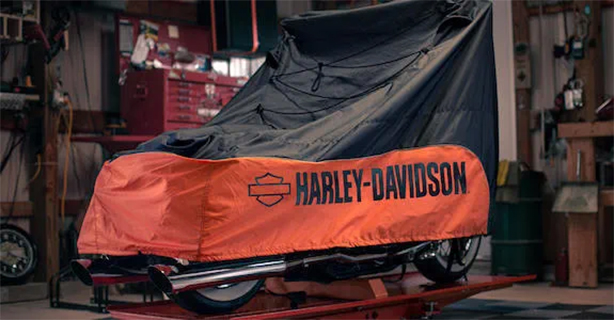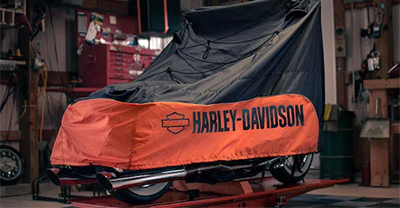Should you pause your insurance if you only hit the road during specific months? From protecting against storage-related damage to avoiding future rate hikes, discover why keeping your motorcycle insurance active year-round isn’t just smart - it’s essential.
The roar of a motorcycle on a sunny day is a thrill like no other. But as winter approaches and your bike is tucked away in storage, maintaining your motorcycle insurance becomes crucial for protecting your investment and ensuring peace of mind.
While it may be tempting to cancel your motorcycle insurance during the months you don't ride, it is not a recommended practice. There are several reasons why it is important to maintain your motorcycle insurance coverage year-round, even during the months when your bike is not in use.
In this article, we will explore why keeping your motorcycle insurance policy active throughout the year is in your best interest and the potential risks you may face if you cancel your coverage during the off-season.
WHAT IS SEASONAL MOTORCYCLE INSURANCE?
Seasonal motorcycle insurance allows riders to adjust coverage options or alter the policy's lay-up period (the time when the motorcycle is not in use).
This type of insurance, often referred to as motorcycle winter lay-up insurance, offers flexibility and cost savings for individuals who ride only during specific times of the year or for recreational purposes.
While most motorcycle insurance companies do allow for changes to your annual policy, many insurers do not offer a “winter layup” policy, and for good reason.
Why Canceling Your Motorcycle Insurance in Winter Could Cost You More
When considering lay-up policy vs. canceling coverage, it's important to understand the long-term risks associated with a full cancellation—especially if you're financing your bike or live in a theft-prone area.
While it might seem like a cost-saving measure to cancel your insurance during the off-season, the potential risks and long-term costs can outweigh the short-term savings.
For example, there may be additional fees or effects to your policy that aren’t being considered when a policy is canceled:
Lease or loan agreements: Typically, a lender or lessor will require a minimum level of insurance coverage for the duration of the contract. Cancellation of your motorcycle policy could be a clear violation of the financial agreement.
Early cancellation fees: Although this may vary depending on the insurance provider, you may incur a penalty for canceling your motorcycle insurance early, which can diminish the total savings accumulated over a few months without coverage.
Refusal to insure: If insurers detect a habit of canceling/renewing your insurance each year, they may refuse to insure you in the future. If forced to switch carriers, it could mean a higher annual premium, negating your savings.
Increased policy premiums: Policy pricing can fluctuate based on many factors. If a policy is canceled over the winter, a new policy in the spring may result in an increased premium, even if you maintain the same type of coverage.
Lost Discounts: Canceling your policy prior to renewal may result in more lost discounts than just renewal discounts – ultimately increasing your policy premium.
Think beyond just the winter months. Protecting your motorcycle year-round can pay off in long-term savings and peace of mind.
THE RISKS OF DROPPING MOTORCYCLE INSURANCE
Dropping your motorcycle insurance can expose you to several risks. Without adequate coverage, you are unprotected against theft, vandalism, and natural disasters, leading to potentially high out-of-pocket costs. Mishaps can happen even in storage, and uninsured damages could be financially devastating.
Damage Or Theft In Storage
Just because your bike is safely stored for the winter season doesn’t mean it’s immune to threats. There's always a risk of unforeseen damage or even theft.
Homeowners or renters insurance typically excludes motor vehicles, including motorcycles, from personal property coverage—even when stored in a garage. That means damage from fire, theft, or vandalism may not be covered unless you maintain comprehensive motorcycle coverage.
Without a motorcycle insurance policy in place, repair or replacement costs may come out of your pocket. Be sure to discuss comprehensive and collision coverage with your agent to ensure that incidents involving your bike are protected.
Some of the risks, even in seemingly safe storage environments, include:
Falling objects - In garages or any other type of storage, tools, boxes, or other items are often stored overhead or nearby. These items can accidentally fall and damage your motorcycle, causing dents, scratches, or more serious harm.
Natural disasters - Events like floods, earthquakes, or fires don't discriminate between a motorcycle on the road and one in storage.
Theft - Even in the best-locked garages or storage units, thieves can still find a way if they're determined and sophisticated. Motorcycles, especially those of high value, can be lucrative targets.
Accidental damage - Someone could knock your bike over while moving other items or parking another vehicle. A simple mistake could lead to costly out-of-pocket repairs.
Vandalism - Even in the safety of a garage or storage space, there's always the risk of vandalism. Unfortunately, not everyone respects personal property, and an uninsured motorcycle can be an easy target.
Unexpected Ride Opportunities
The weather can be unpredictable. Yes, winter is traditionally considered the “off-season” for riders, yet Mother Nature doesn't always play by the rules.
A sunny day might pop up in the middle of a cold month, giving you a perfect chance for a ride.
If you’ve canceled your insurance and decide to take the bike out, you risk being uninsured on the road–a gamble not worth taking.
Actual Savings May Be Minimal
Another important consideration: you may not realize any savings by canceling your policy over the winter.
Insurance companies vary, but some may consider the typical riding season in your state when they price a policy (even if it's spread over 12 months). That means you may not receive a refund for canceling your winter coverage.
Save Money By Comparing Insurance Quotes
Instead of canceling your insurance, consider comparing quotes from different providers. You might find a more affordable rate or a plan that offers flexible coverage for riders like you.
Remember, it’s not always about cutting off protection, but about finding the right protection at the right price.
Here are our top tips on comparing motorcycle insurance effectively:
Know your needs - Understand your coverage requirements based on the type of bike you ride, riding habits, and personal needs.
Always compare similar policies - When making a decision about which insurer to place your business with, ensure you are comparing “apples to apples” in terms of coverages, limits, and deductibles. Avoid comparing policy provisions with dissimilar attributes or coverage limits.
Reputation matters - Quick online reviews can tell a lot about an insurer's customer service and claim settlement.
Ask about discounts - Ask about insurance discounts for safety courses, multiple policies, and anti-theft devices.
Watch for exclusions - Always check what's NOT covered - especially as it relates to your current policy (see #2 above).
Balance deductibles - A lower premium might mean a higher out-of-pocket deductible.
Flexible policies win - Can you easily adjust or add motorcycle coverages?
Claims process - A straightforward claims process is golden.
Rate stability - Beware of insurers that hike rates significantly after the first year.
OTHER OPTIONS FOR MOTORCYCLE INSURANCE DURING THE WINTER
When the colder months roll in and your motorcycle sees less road time, it might seem tempting to cut corners on insurance.
Instead, consider these alternatives to maintain protection while potentially saving some money.
Take A Motorcycle Safety Class
Safety first!
Many insurance companies offer discounts to riders who complete certified motorcycle safety courses. Not only does this potentially reduce your premium, but it also hones your skills, making you a better rider when the summer months return.
Take Advantage Of Discounts
Insurance companies offer various discounts, and winter could be the best time to explore and utilize them by taking advantage of loyalty discounts or other options to help you save.
Make sure to reach out to your motorcycle insurance provider and inquire about any discounts you might be eligible for, including:
Loyalty programs - Have you been with the same insurer for years? You may be eligible for loyalty discounts.
Safety gear and anti-theft discounts - Some insurers offer discounts for motorcycles equipped with anti-theft devices or for riders who invest in high-quality safety gear.
Pay in full - If feasible, paying your premium upfront rather than monthly installments can secure a discount.
By employing one or several of these strategies, you can maintain the necessary coverage for your motorcycle without feeling like you're throwing money away during the winter months. It's all about thoughtful planning and making the choices that suit your riding lifestyle best.
FREQUENTLY ASKED QUESTIONS
Do I Need To Insure My Motorcycle Even If I'M Not Riding It?
Yes, it's generally recommended to keep your motorcycle insured even if you're not actively riding it.
Here's why:
Protection from non-riding-related damages - Your bike is susceptible to theft, natural disasters, or unexpected damage from falling objects, even when stored.
Legal requirements - Depending on your state’s motorcycle laws, you might be legally obligated to keep some form of insurance on your bike, especially if it still needs to be fully paid off or registered.
Potential policy benefits - Some insurance policies offer benefits that accumulate over time without claims. By canceling, you might lose out on these benefits.
Can Canceling Insurance Affect my Registration or Driving Record?
Yes. In some states, canceling insurance without officially de-registering your motorcycle may lead to DMV penalties or require future proof of financial responsibility (e.g., SR-22 filing).
Can I Cancel My Motorcycle Insurance In The Winter?
There are several reasons why canceling your policy during the winter is not advised, including:
Risks of Unforeseen Damages - As mentioned earlier, unexpected events such as theft or storm damage can occur even when your motorcycle is in storage. Without insurance, you'll bear all repair or replacement costs.
Unexpected ride days - Winter weather can be unpredictable. If an unexpectedly warm and sunny day occurs, and you decide to ride without insurance, you'll be at risk.
Potential fees - Some insurance policies may have cancellation fees or conditions that could result in higher costs in the long run.
Coverage Gap - When you cancel and then reinstate your insurance, a coverage gap may occur, which can sometimes impact future premium costs or your insurability with your current provider.
Wrapping Up
Winter may pause your rides, but it shouldn’t pause your protection. Ready to protect your ride the smart way?
Get a free online quote today and ride into next season with confidence.
Related Resources
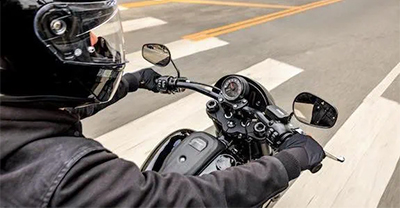
Discover some of the most important motorcycle insurance terms and coverage definitions that you should know when shopping for a policy.
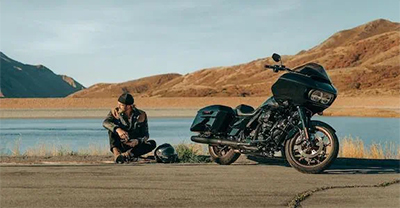
Considering a switch to a new motorcycle insurance provider? Here’s everything you need to know about evaluating your options and pulling the trigger.
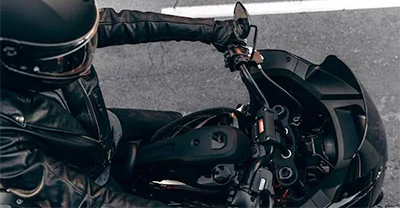
The insurance logistics to test ride a motorcycle can be complicated if there is an unforeseen motorcycle incident. Here’s everything you need to know.
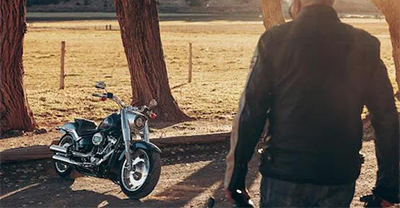
What do you do if your closest friend wants to take your bike for a spin? Knowing your insurance policy's coverage and liability rules is the first step.

